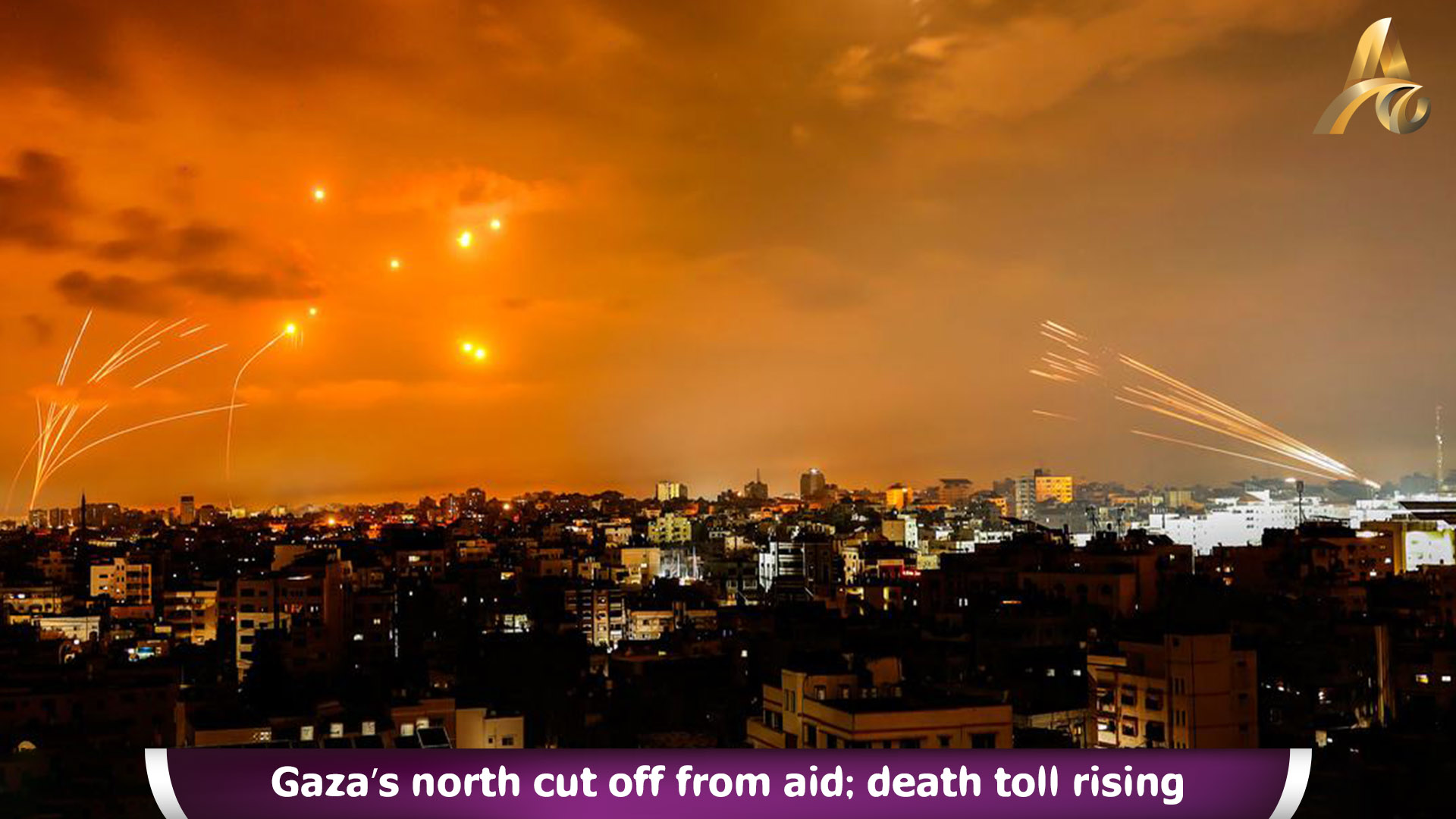UN: According to the Hamas-run Ministry of Health, 8,805 Palestinians have been killed since 7 October, including at least 3,648 children and 2,187 women, and some 22,240 have been injured, UN humanitarian coordination affairs office OCHA said.
The UN human rights office OHCHR noted on Wednesday that given the high number of civilian deaths and injuries in Gaza “and the scale of the destruction following Israeli airstrikes on Jabalia refugee camp, we have serious concerns that these are disproportionate attacks that could amount to war crimes."
Meanwhile, in a blow to scores of chronically ill patients, Gaza’s main cancer treatment centre, the Turkish-Palestinian Friendship Hospital, ran out of fuel and was forced to stop most of its activities. The lives of some 70 patients are in danger, OCHA wrote on social platform X on Thursday.
OCHA also sounded the alarm over reports that the Al Hilo Hospital, also in Gaza city, was reportedly struck by shelling Wednesday night. “The hospital had absorbed and replaced Shifa hospital’s maternity ward, which is being used now to treat the wounded,” OCHA said.
Currently, 14 out of 35 hospitals across Gaza are not functioning.
The head of the World Health Organization (WHO) Tedros Adhanom Ghebreyesus said at a a press briefing, his teams "will do everything we can to ensure that all people in Gaza have access to life saving health and humanitarian services", adding that "in the current situation this is almost impossible."
"At the very least, we need a humanitarian pause in the fighting, and ideally an end to the conflict. We need unfettered access and safe passage agreed by both parties to ensure the security of access routes.
He repeated that there could be "no justification" for the horrific terror attacks by Hamas of 7 October.
"I understand the grief, the anger and the fear of the Israeli people. I also understand the grief, the anger, and the fear of the Palestinian people. WHO continues to call on Hamas to release the hostages it took, many of whom need urgent medical attention. We continue to call on Israel to restore supplies of electricity, water and fuel."
Gaza city and northern Gaza have been “largely cut off” from the rest of the strip as a result of the Israeli ground operations and related clashes with Palestinian armed groups, OCHA said.
This means that the delivery of humanitarian aid from the south to some 300,000 internally displaced persons in the north has “come to a halt”.
OCHA reported that on Wednesday ten trucks carrying water, food and medicines entered Gaza through the Rafah crossing on the enclave’s southern border with Egypt, bringing the total number of aid trucks allowed in since 21 October to 227.
UN relief chief Martin Griffiths, who just completed a visit to Israel and the Occupied Palestinian Territory, said that “the trucks which have crossed into Gaza so far following painstaking negotiations offer some relief but are nowhere near enough”.
The entry of fuel essential for hospitals, ambulances and water desalination plants remains banned by the Israeli authorities.
Speaking at the regular noon briefing in New York, UN Spokesperson Stéphane Dujarric said the UN Secretary-General António Guterres welcomed the "continued movement of people and humanitarian assistance through the Rafah crossing."
A regular and sustained flow of aid on a "scale needed to meet the mounting needs of the Palestinian population" is essential, he added.
The aid flow together with the rotation of UN personnel via the crossing - and movement of foreign nationals - "is an important step in the right direction, on which we need to build."
"The UN remains committed to continuing our intensive work with all parties to alleviate the suffering of the most vulnerable people in Gaza", he said.
Gaza city and northern Gaza have been “largely cut off” from the rest of the strip as a result of the Israeli ground operations and related clashes with Palestinian armed groups, OCHA said.
This means that the delivery of humanitarian aid from the south to some 300,000 internally displaced persons in the north has “come to a halt”.
OCHA reported that on Wednesday ten trucks carrying water, food and medicines entered Gaza through the Rafah crossing on the enclave’s southern border with Egypt, bringing the total number of aid trucks allowed in since 21 October to 227.
UN relief chief Martin Griffiths, who just completed a visit to Israel and the Occupied Palestinian Territory, said that “the trucks which have crossed into Gaza so far following painstaking negotiations offer some relief but are nowhere near enough”.
The entry of fuel essential for hospitals, ambulances and water desalination plants remains banned by the Israeli authorities.



UNICEF/Eyad El Baba






















